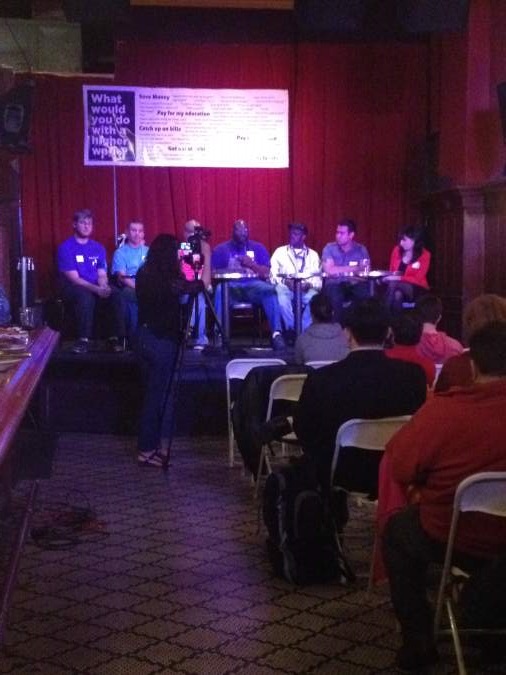As folks who read Voracious may know, I’m married to an extremely picky eater. But that’s not common knowledge among the kind cooks who sometimes ask us to their homes for dinner, which means I always wrestle with how to accept dinner invitations.
Worried that my husband’s silent refusal to eat most vegetables and any dish seasoned with spices more exotic than salt and pepper will be misinterpreted as a referendum on our host’s cooking, I’ve gotten in the habit of warning friends that he eats like a 60-year-old Republican. My proactive explanations have been met with understanding, and—when the hosts have children—elicited offers to save a share of whatever the kids are having. My husband is very happy eating plain noodles, so I thought my strategy was unassailable. It strikes my husband as just plain rude.
Turns out, he’s right—and wrong. According to etiquette expert Stephanie Horton of Top Dog Etiquette in Grapeview, Wash., the goal of good manners is to avoid making anyone uncomfortable, which is apparently what I’m doing by calling attention to my husband’s long list of dislikes.
But Horton says a grown man is obliged to eat what’s put on his plate, even if it’s curried tofu. “You really have to deal with what comes to you,” she says. “It’s up to him to get through it.”
Horton briefly dated a picky eater who made a show of not eating what he was served. “He’d put his fruit on my plate,” Horton recalls. “I was like, ‘No, I’m the etiquette lady. I can’t deal with this.’ I thought he could deal with a piece of cantaloupe.”
The prohibition on making menu requests of a dinner host doesn’t cover guests with allergies, who should tell their hosts whether there are foods they can’t eat. But, absent a health issue, raising the issue of what’s being served is tantamount to requesting specific dishes. That’s extremely rude, Horton warns.
Fortunately, Horton says my husband’s eating habits don’t reflect on me.
“It really says more about him,” she says.








